13 December 2024
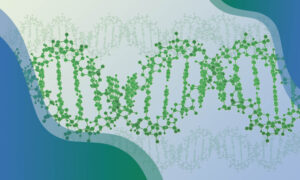
Right from the early days of DNA sequencing, EMBL’s scientists have been instrumental in helping the world understand, decode, archive, and manipulate genomes at scale and across many branches of the evolutionary tree, a task they continue to excel at today.
SCIENCE & TECHNOLOGY
18 October 2024

Ensembl 113 brings major gene and regulatory feature annotation updates in Homo sapiens (human) and Mus musculus (mouse).
2024
updates-from-data-resources
11 March 2024
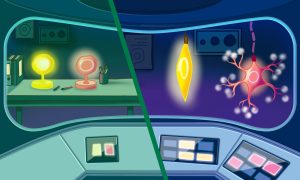
New research from EMBL Heidelberg shows how cells in developing embryos undergo a major shift in the way they regulate gene expression as they mature and differentiate.
SCIENCE & TECHNOLOGY
2024
sciencescience-technology
22 November 2023

EMBL scientist Oliver Stegle explains how AI-based tools have the potential to transform our ability to better understand the complexity of life and how these tools will shape the future of life science exploration.
LAB MATTERSPEOPLE & PERSPECTIVES
2023
lab-matterspeople-perspectives
25 July 2023

Ensembl 110 and Ensembl Genomes 57 have introduced in-house prokaryotic gene annotation across genomes available in Ensembl Bacteria. Since its inception, Ensembl Bacteria has imported user-submitted annotations from the International Nucleotide Sequence Database Collaboration (INSDC) for…
2023
updates-from-data-resources
24 July 2023
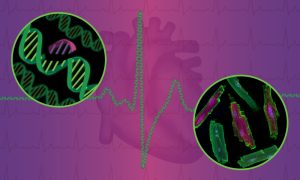
EMBL researchers have made new strides into understanding and reversing genetic defects that underlie familial heart disease.
SCIENCE & TECHNOLOGY
2023
sciencescience-technology
18 July 2023

The GA4GH standard refget quietly helps decipher millions of genomes sequenced worldwide, and it just got better.
2023
technology-and-innovation
14 July 2023

EMBL researchers use a new cell sorting technology to gain new insights into cellular function in health and disease, as well as for other innovative applications.
SCIENCE & TECHNOLOGY
2023
sciencescience-technology
22 March 2023
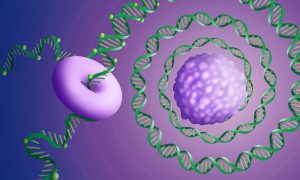
Using Oxford Nanopore long-read sequencing, EMBL scientists sequenced a primary childhood brain tumour known as a medulloblastoma, uncovering a novel complex mutation pattern.
6 March 2023
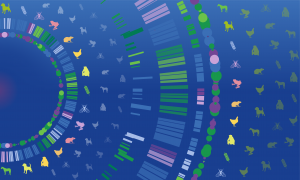
As major biodiversity projects ramp up, EMBL-EBI enables genomic data sharing for all species.
17 November 2022

EMBL deepens scientific collaboration, opening the door for greater engagement and opportunities for Malta’s life science community
CONNECTIONS
4 August 2022
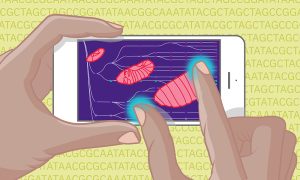
EMBL and UW researchers plus additional collaborators have constructed a complete map of fruit fly embryonic development using machine learning. This research is foundational to better understanding overall embryo development in other species, including humans.
SCIENCE & TECHNOLOGY
2022
sciencescience-technology
8 June 2022

The African BioGenome Project and EMBL have signed a Memorandum of Understanding to support each other in building genomics and bioinformatics capacity across Africa
CONNECTIONSLAB MATTERS
2022
announcementsconnectionslab-matters
31 May 2022
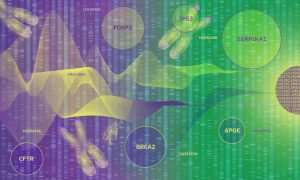
Researchers in the Ensembl team are making the most of machine learning methods to speed up genome annotation pipelines
SCIENCE & TECHNOLOGY
2022
sciencescience-technologytechnology-and-innovation
25 February 2022
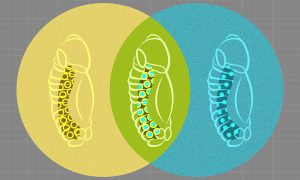
Researchers from the Furlong group at EMBL have come up with a way to observe the development of fruit-fly embryos simultaneously at the genetic and cellular levels, generating a high-resolution and integrated view of how different cell lineages form.
SCIENCE & TECHNOLOGY
2022
sciencescience-technology
21 January 2022

EMBL researchers, in collaboration with BD Biosciences, have demonstrated a new technology that allows rapid image-based sorting of cells. The new technology represents a major upgrade to flow cytometry and has applications in diverse life science fields.
SCIENCE & TECHNOLOGY
2022
sciencescience-technology
21 January 2022
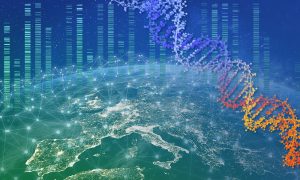
On track to reach an ambitious goal of 3,000 genomes sequenced by the end of 2022, what’s next for the Earth Biogenome Project?
SCIENCE & TECHNOLOGY
2022
announcementssciencescience-technology
9 December 2021

EMBL Senior Scientist and Head of the Genome Biology Unit is among the researchers honoured for outstanding work by the German Research Foundation (Deutsche Forschungsgemeinschaft, DFG).
EMBL ANNOUNCEMENTSLAB MATTERS
2021
embl-announcementslab-matters
25 November 2021

Maria Zimmermann-Kogadeeva is one of EMBL’s newest group leaders and a computational biologist whose research group applies computational modelling to better understand the metabolism of gut bacteria and their potential to have far-reaching impacts on other organs.
LAB MATTERSPEOPLE & PERSPECTIVES
2021
lab-matterspeople-perspectives
13 October 2021

Researchers from EMBL’s Typas group and collaborators have analysed the effects of 144 antibiotics on the wellbeing of gut microbes. The study improves our understanding of antibiotics’ side effects and suggests a new approach to mitigating the adverse effects of antibiotics therapy on gut…
SCIENCE & TECHNOLOGY
2021
sciencescience-technology
7 July 2021
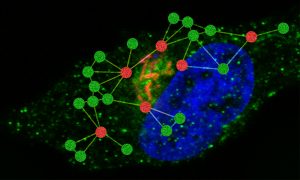
Research in the Typas group uncovers new details of the strategies Salmonella uses to survive in infected cells.
SCIENCE & TECHNOLOGY
2021
sciencescience-technology
5 July 2021

EMBL welcomes Sarah Dyer, the new Non-Vertebrate Genomics Team Leader at EMBL-EBI.
LAB MATTERSPEOPLE & PERSPECTIVES
2021
lab-matterspeople-perspectives
18 June 2021

After work in antimicrobial resistance, EMBL postdoc Laura Carroll is using machine learning for next-gen antibiotic development.
PEOPLE & PERSPECTIVES
2021
people-perspectivesscience
28 April 2021
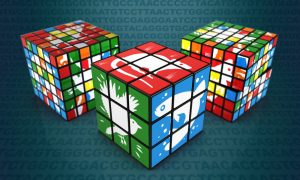
Researchers reveal the best technology for assembling reference genomes.
SCIENCE & TECHNOLOGY
2021
sciencescience-technology
26 February 2021

As one of EMBL’s newest group leaders, Sinem Saka will combine multiple technologies, such as microscopy and single-cell omics, to solve biological puzzles.
LAB MATTERSPEOPLE & PERSPECTIVES
2021
lab-matterspeople-perspectives
16 February 2021
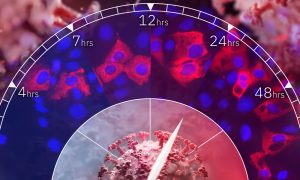
A team of EMBL scientists and colleagues have analysed how the novel coronavirus affects proteins in human cells. They identified several human proteins as potential drug targets to prevent viral replication.
SCIENCE & TECHNOLOGY
2021
sciencescience-technology
9 December 2020
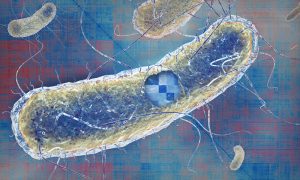
A new paper from EMBL’s Savitski team and Typas group describes their work on E. coli and how it brings a greater understanding of the way genes function and interact.
SCIENCE & TECHNOLOGY
2020
sciencescience-technology
19 August 2020
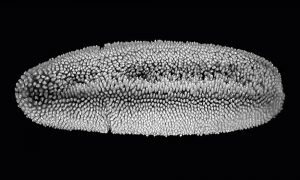
Discoveries at EMBL will help researchers to interpret one of the most common types of experiments in genomics and medical studies.
SCIENCE & TECHNOLOGY
2020
sciencescience-technology
1 June 2020
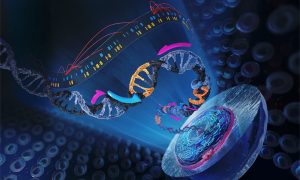
Scientists at EMBL Heidelberg have developed a new method, called Targeted Perturb-seq (TAP-seq), which increases the scale and precision of functional genomics CRISPR–Cas9 screens by orders of magnitude. Their method overcomes limitations in previous applications of single-cell RNA sequencing,…
SCIENCE & TECHNOLOGY
2020
sciencescience-technology
23 April 2020

The virtual EMBO | EMBL symposium ‘The Four-Dimensional Genome’ brought together 470 participants. Here, Jürgen Deka, Head of External Scientific Training, discusses how he and his team overcame the organisational challenges.
LAB MATTERS
5 March 2020
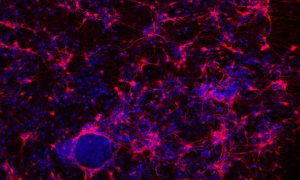
EMBL researchers investigate the role of a histone protein in regulating gene expression
SCIENCE & TECHNOLOGY
2020
sciencescience-technology
11 March 2019

Scientists develop technology to measure how ATP concentration affects protein solubility in cells
SCIENCE & TECHNOLOGY
2019
sciencescience-technology
23 May 2018
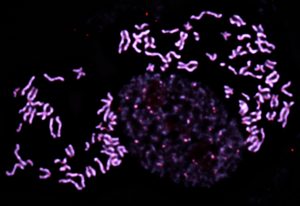
EMBL group leader Jan Korbel reflects on his scientific origins and current research
SCIENCE & TECHNOLOGY
2018
sciencescience-technology
15 March 2018
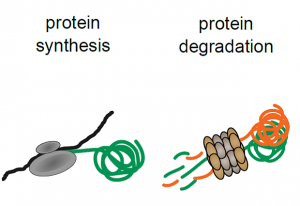
Scientists at EMBL and Cellzome develop technology to monitor the effects of drug treatments on protein degradation and synthesis
SCIENCE & TECHNOLOGY
2018
sciencescience-technology
15 February 2018
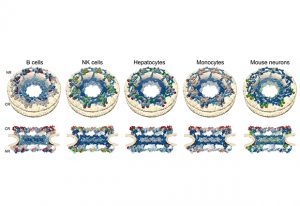
EMBL scientists create a turnover catalogue of almost 10.000 proteins from primary cells
SCIENCE & TECHNOLOGY
2018
sciencescience-technology
9 February 2018

EMBL’s new group leader studies how gene expression is controlled
PEOPLE & PERSPECTIVES
2018
people-perspectivesscience
30 January 2018
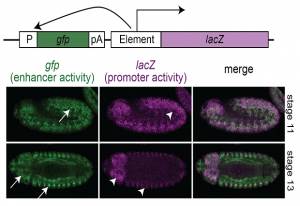
EMBL scientists show that some promoters can act as enhancers and vice versa
SCIENCE & TECHNOLOGY
2018
sciencescience-technology
20 December 2017

What are the strangest genomes in EMBL-EBI's Ensembl?
SCIENCE & TECHNOLOGY
2017
sciencescience-technology
28 August 2017
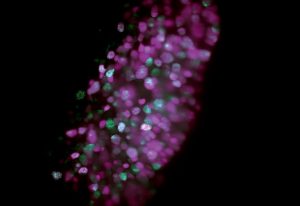
Lars Steinmetz. Director of the Life Science Alliance, reflects on the EMBL|Stanford initiative
CONNECTIONS
25 April 2017
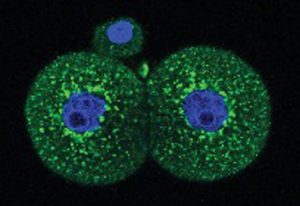
EMBL scientists detect important function of genetic sequence our ancestors assimilated from a virus
SCIENCE & TECHNOLOGY
2017
sciencescience-technology
6 April 2017
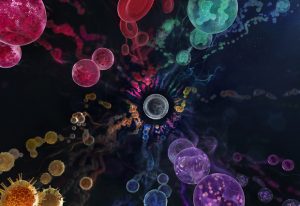
Study by EMBL and DKFZ researchers means origins of myeloid leukaemias may need rethinking
SCIENCE & TECHNOLOGY
2017
sciencescience-technology
2 February 2011
A detailed analysis of data from 185 human genomes sequenced in the course of the 1000 Genomes Project, by scientists at the European Molecular Biology Laboratory (EMBL) in Heidelberg, Germany, in collaboration with researchers at the Wellcome Trust Sanger Institute in Cambridge, UK, as well as the…
SCIENCE & TECHNOLOGY
2011
sciencescience-technology
No results found







































